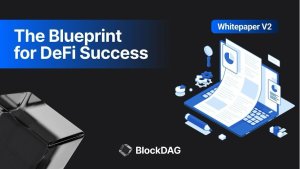NY Court rules in favor of Drew Niv and FXCM Inc in “Black Swan” case
A case which alleged that FXCM Inc and Drew Niv misled investors about the risks associated with FXCM’s business gets dismissed in New York.

Drew Niv and FXCM Inc, now known as Global Brokerage Inc (OTCMKTS:GLBR), have had a case against them dismissed in New York. Judge Kimba M. Wood of the New York Southern District Court has ruled in favor of the defendants in a lawsuit concerning the events around January 15, 2015.
The plaintiff – Retirement Board of the Policemen’s Annuity and Benefit Fund of Chicago, acting on behalf of the Policemen’s Annuity and Benefit Fund of Chicago, had brought this putative securities class action against FXCM Inc. (“FXCM”) and Dror Niv. The plaintiff alleged that FXCM and Niv had made material misstatements and omissions concerning risks in FXCM’s business. The defendants have moved to dismiss the plaintiff’s Second Amended Complaint for failing to adequately allege (i) that Defendants made a materially false statement, (ii) that Defendants acted with scienter, and (iii) loss causation.
In the latest court filings, seen by FinanceFeeds, the Judge grants the defendants’ motion to dismiss because the plaintiff has failed to adequately allege that FXCM and Niv made material misrepresentations or omissions and acted with scienter.
Let’s recall that the plaintiff in the case is an institutional investor that purchased FXCM common stock from March 17, 2014, up to and including January 20, 2015. It brought this putative class action on behalf of all those who purchased or otherwise acquired FXCM stock during the Class Period and were damaged thereby.
The plaintiff had alleged, in particular, that FXCM and Niv misled investors about the risks associated with FXCM’s business, especially with respect to the risks associated with FXCM’s “agency model,” FXCM’s leverage policies, and FXCM’s exposure to massive losses if the Euro were de-pegged from the Swiss Franc.
The Court found that the broker and its ex-CEO did not misled investors. FXCM’s statements in its 2013 10-K that it was a “riskless principal” and was “not exposed to market risk” were not materially misleading when viewed in the context of the document as a whole. In that context, it is clear that FXCM’s agency model did not eliminate all risk, but only certain types of risk. The document discloses, for example, that FXCM’s operations “involved risk of loss due to the potential failure of customers to perform their obligations under these transactions,” including the risk that “a customer’s losses exceed the amount of cash in their account.”
For these reasons, according to the Judge, no reasonable investor reading FXCM’s 2013 Form 10-K would have believed that FXCM’s agency model made it “riskless.”
Because FXCM fully explained the risk, a reasonable investor would have understood the risk to which FXCM was exposed, the Opinion & Order by Judge Wood says.
The plaintiff also alleges that FXCM and Niv made false statements that FXCM had a “fairly conservative margin policy,” “maintained a substantial pool of liquidity,” and “maintained excess regulatory capital.” These types of statements are not actionable, the Court says, because they are the types of general statements that investors are unlikely to rely on.
Regarding the plaintiff claims that because FXCM’s customers had a $2.2 billion position in the EUR/CHF pair, FXCM misrepresented that it had “no material changes in its risk factors”, the Court finds that this statement is too vague to be actionable.
Plaintiff also claims that as FXCM’s CEO, Niv must have known that FXCM was concealing an “enormous, highly-leveraged $2.2 billion long bet,” and thus must have known that FXCM’s statements about its risks were false. On its own, this allegation is not enough to show scienter, the Judge said. Although Niv’s knowledge of the $2.2 billion position shows that Niv was aware of the possible consequences of the EUR/CHF being de-pegged, it does not speak to the likelihood of that event occurring. To prove scienter, Plaintiff must allege Niv perceived the risk as a serious possibility at the time, not merely in hindsight. But the plaintiff admits that “industry participants” were “shocked” by the SNB “suddenly lifting the cap.”
Plaintiff claims that FXCM’s prior experience with losses from changes in the Japanese Yen and Russian Ruble must have alerted Niv to the risks inherent in FXCM’s business. The Second Amended Complaint also alleges, however, that FXCM survived that period of volatility. For this reason, as the Court previously noted, this fact weighs against a finding of scienter.
Plaintiff contends that scienter exists because Niv was aware “that other companies had raised margin requirements” with respect to the EUR/CHF pair. As the Court previously held, however, information about FXCM’s competitors “provides no information about Defendants’ conduct or knowledge.”
The fact that Niv made a different decision than his competitors shows nothing more than that he had a different business judgment, the Court finds.
If the plaintiffs disagree with a judgment or final order of the district court, they may appeal to the United States Court of Appeals for the Second Circuit. To start this process, they have to file a “Notice of Appeal” within 30 days after the judgment or order is entered on the Court’s docket.









